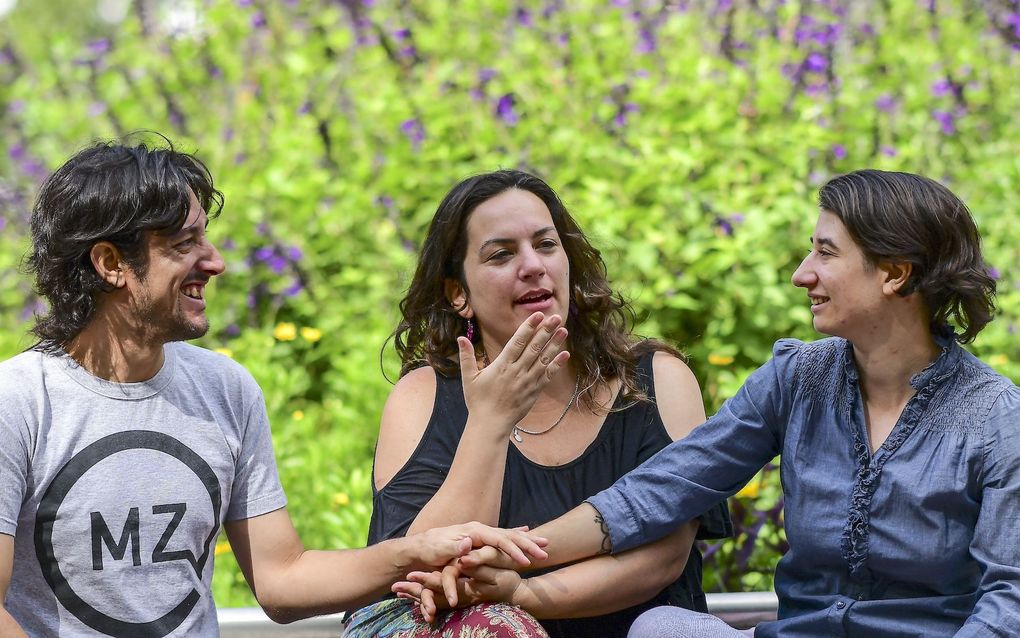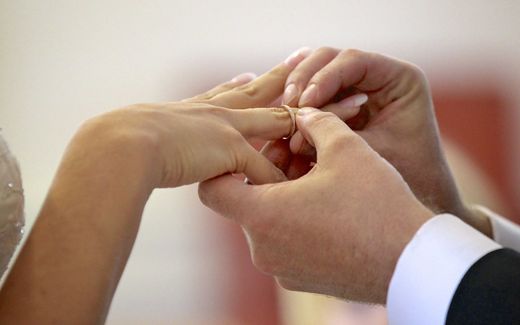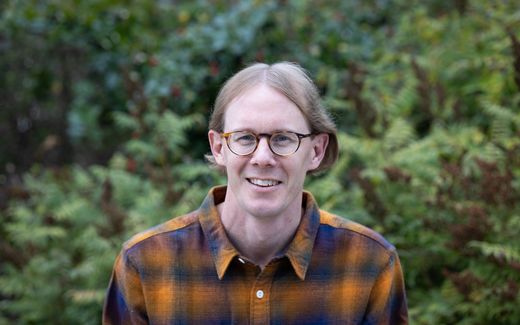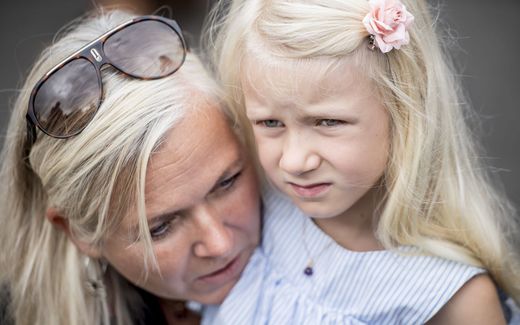Why same-sex relations are not the end for the Church of Sweden

A polyamorous throuple. Photo AFP, Ronaldo Schemidt
Northern Europe
For some, it is already too far for the Church of Sweden to bless same-sex relationships. But for others, the Church must go further and embrace polyamory in its Good Message. "This is not about marriage," say some who represent Sweden's national Lutheran Church." This autumn, the Church will decide.
Stay up to date with Christian news in Europe? Sign up for CNE's newsletter.
The Gospel might speak about "two who will become one flesh." But representatives of ViSK (The Political left in the Church of Sweden) stated in July that it should prepare to accept additional forms of sexual identities such as polyamory and asexuality.
Polyamory is the same as having multiple consensual relationships that can be sexual or emotional. Now, ViSK may be ready to vote on their official recognition in October, according to an article from Vart Land.
Linda Sjöö, the proposal's author, says that it is important to support those who identify as polyamorous specifically, as these individuals have felt excluded from Church leadership and activities.
"Clarification is needed. Because the risk is that we tell people that they are welcome in the Church and then it turns out that they are not. We cannot behave as a church like this," she says to Kyrkans Tidning.
Inclusion
Sjöö also said that the Church must give attention to other identities that go outside the norm of monogamy, such as those who are asexual. Asexuality is defined as the absence of sexual attraction. Theologian Lina Landström echoed Sjöö's views to Vart Land that the Church should not only accept those who identify as polyamorous but allow them to become church leaders.
Sjöö is part of Vanstern i Svenska Kyrkan (ViSK), a nonpartisan group affiliated with the national Lutheran Church. ViSK group leaders and national chairmen Anders Lundberg and Mats Berglund have been informed of the proposal and have decided to accept it as an official ViSK motion.
"There is a fear among certain groups of Christians. I cannot see the danger this would create," Lundberg says. "We are proponents of an open church to discuss sensitive issues. We want to embrace this group of people." Lundberg says about those who identify as polyamorous.
Berglund and Lundberg said that whenever someone comes for counselling, they should feel safe to do so, and that should extend to the polyamorous community. They both emphasised that a declaration is needed since the views of individual churches are not clear.
"There should be acceptance," Berglund, the president of ViSK, says.
Potential consequences
Both have also emphasised that its inclusion of polyamory will not change the Church's view of marriage. "This is not about marriage. None of us proposed that. I don't see that connection," Berglund says.
However, Olof Edsinger, the General Secretary of the Swedish Evangelical Alliance (SEA), disagrees and says that the proposal is a logical step after detaching the Church from a traditional understanding of marriage, basically adopting secular individualism and self-expression as the only valid moral norms.
"Since some years now, we've had priests in same-sex relationships," he said. "It's part of the bigger narrative of the Lutheran Church becoming secularised. They see this as part of a liberation project, freeing themselves from the do's and don'ts of the past."
As many churches promote alternative sexual expressions, the children's perspective is very weak, as these decisions always prioritise the parents' needs and decisions, Edsinger says.
"In a same-sex marriage with children, one biological parent will always be absent. And in a polyamorous family, there will be a lot of confusion around parenting and parental responsibilities. As soon as we leave the traditional marriage, we open up a host of problems," he says.
Edsinger adds that when we go against the order of God's creation, it leads to consequences that are reflected in later generations.
Strings
Although proponents of polyamory argue that children receive more love and attention when there are more adults, the authors of the book Them Before Us, Katy Faust and Stacy Manning, say that this is not the case.
Lillian Hamman cites in her World News Group editorial the data from Faust and Manning. The findings suggest that children face a higher risk of abuse when they are not biologically related to the adults.
Young people are forty times more likely to be abused and at least eight times more likely to suffer from maltreatment compared to those raised with two biological parents.
Hamman also notes the work of sociologist Elisabeth Sheff, who says that adults can suffer from various highs and lows in the relationships at play. Although Sheff is a supporter of polyamory, she admitted that the dynamics of multiple relationships can pose additional challenges and induce trauma.
"You can't become polyamorous and then get upset when there are strings," "You're inviting strings," she says, which was cited in the editorial.
At a crossroads
While the Church of Sweden may not officially accept polyamorous relationships, Edsinger said he sees few signs of a return to its view on traditional marriage. He remains hopeful that a "free Lutheran church" could be formed as an alternative to the former state church as it increasingly embraces secular values.
As a whole, Edsinger says that Christians and their congregations should look to the creation account in Genesis 2:24 as well as Jesus' words in Matthew, Mark, and Ephesians to define relationships. All of these passages testify to a man leaving his household so he can be joined to his wife, with the two becoming one flesh.
Proponents of polyamory defend that the Bible contains polygamy and other diverse marital relationships. In answer to this, Edsinger said that the Old Testament accounts need to be read in their context, in a time when marriage was largely a matter of material security. The creation account still functions as the norm, and in Matthew 19:5, Jesus himself pointed out that marriage is only between two people.
"After Jesus' teaching, there is no ambivalence," he says.
Related Articles










